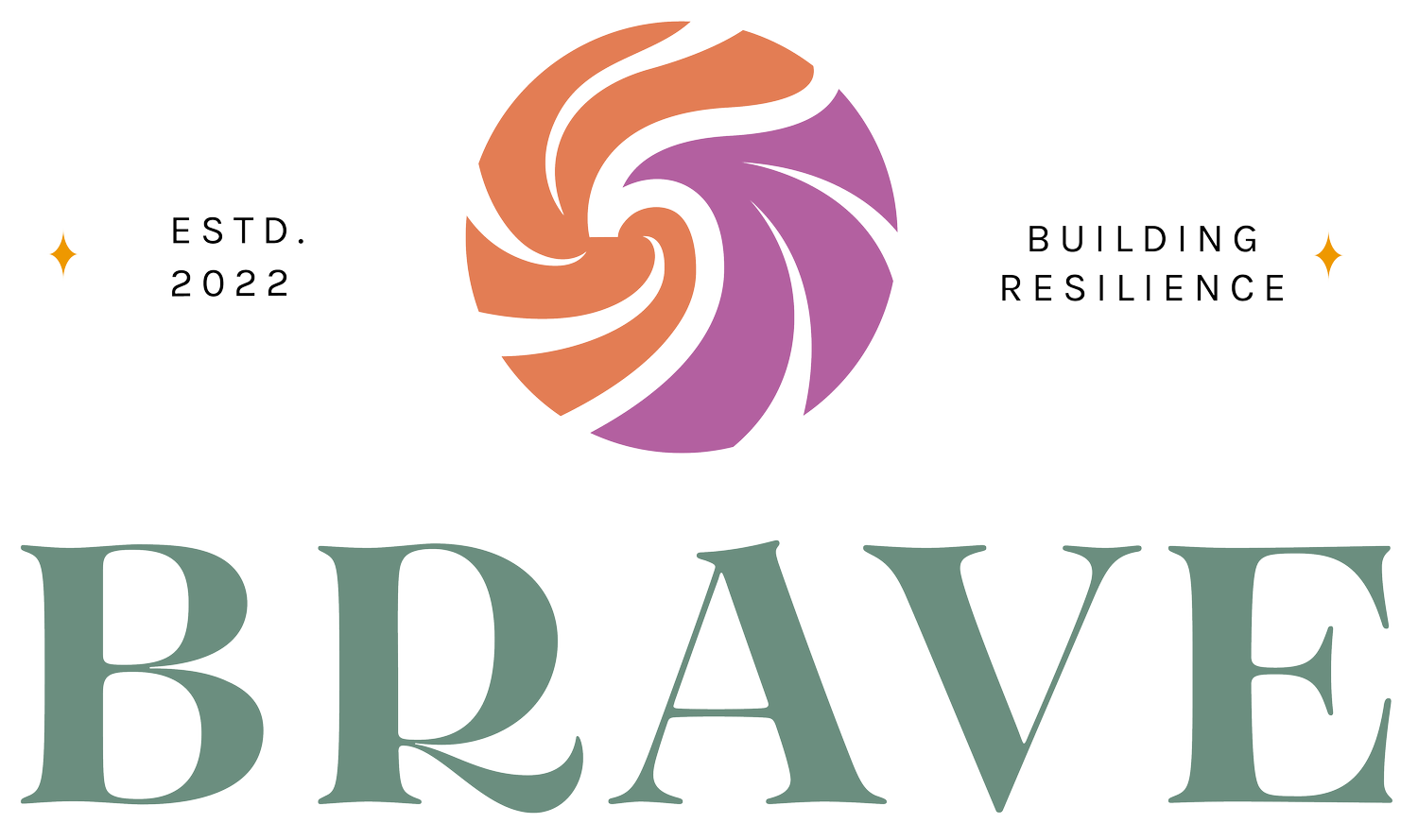Trauma Therapists Deserve to be Cared For Together
Does this sound familiar to you?
You're a badass trauma therapist, pouring your heart and soul into helping others heal from their most profound wounds. Despite the passion you have for this work, there's an inner voice that often goes unheard — your own.
This is the voice that reminds you that it’s ok to be affected by this work; it’s ok to reach out for support; it’s ok to be human.
Even though you know this voice is “right”, you silence it…
Well, I believe it's time to shatter the silence and acknowledge a truth: trauma therapists deserve to be cared for too.
Community kept me on the ship
I know it might sound bold to say that we trauma therapists deserve to be cared for, and to say that we ought to care for each other in community? Unheard of for so many of us.
Yes, there have been shifts in our training and education, thank goodness. And yet, I still find that the “buck up and suck it up” attitude is widely expected by supervisors, colleagues, agencies, and dare I say ourselves.
Why? Because it’s easier if we just keep quiet about the impact our work has on our personal and professional experiences and worldviews.
This expectation is fueling the tsunami of trauma therapists (and therapists in general) who are leaving our field due to burnout, and I get it.
I’ve been on the verge of jumping ship - leaving the work I love so much because I saw it as the only way to save myself.
And you know what? Building and growing The BRAVE Trauma Therapist Collective was one of the ways I was able to make an informed choice to stay on the ship, but on my own terms.
Running this community has also given me plenty of opportunities to reflect on the broader reasons of why and how I didn’t stop being a trauma therapist.
Spoiler alert - it was because of my trauma therapist friends 😉
Why we can’t get by without our friends
Doing trauma work is intense, and intense experiences deserve to be shared. The thing about being a trauma therapist though is that we can’t just go and tell everyone about our work (hello HIPAA!).
But also, not everyone signs up to be a trauma therapist.
That can leave us truly isolated if we don’t have a good support system of other trauma therapists around us, and finding that krewe can be pretty tricky.
🧑🏫Maybe you work in private practice, and even though you have a great consultation group, you’re only meeting 1-2 times a month.
💒Or you might work in an agency where the only time you actually see your colleagues is in the hallway while walking your clients to the waiting room.
Not being able to share our experiences means the stories we hold for our clients get stuck in our brains and bodies with nowhere to go, making our vicarious trauma flare up.
😰That’s when we can’t sleep or feel constantly worried something bad will happen to the people we love.
😡Then when we start to lash out at those people and scheme on how to cut and run!
If you’re caught in that void, keep reading so I can help you reconnect with people who get what it’s like to do the amazing work you do!
Being seen and heard as trauma therapists
Finding trauma therapists to be part of your support system can be like finding a needle in a haystack. I know this from personal experience.
I think a lot of the barriers again come down to the suck it up culture of our profession that gets internalized as “if I ask for help, I’m not good enough.”
This is often compounded by questions like, “how can you do that kind of work?”
And it’s not just non-clinicians asking you that…
It’s important to respect that not many people choose to sign up for this work - it is difficult, despite how incredibly rewarding it is.
And yet, it can feel pretty lonely out there when you don’t have a protected space to share about what it’s truly like to be a trauma therapist.
Once you find those people though, it’s like a huge weight has been lifted and you can breathe again knowing they have your back.
Sharing with other trauma therapists means you don’t have to censor yourself or explain the ins and outs of trauma work.
Having these people means all parts of you can be seen and heard.
But what do you do if you don’t have a krewe of other trauma therapists to help you release the pressure that builds up from your work?
It’s not like you can just pull them out of thin air, right?
WRONG (sort of)! 😊
Finding Your Support System
I want to teach you a strategy that I’ve adapted from Cognitive Processing Therapy that will help you decide with whom you can discuss certain topics.
If you’re familiar with CPT, this is the Trust Star, but a little bit different.
The first thing I want you to do is write down the names of your closest therapist friends, regardless of their specialty.
Next, I want you to write about the different kinds of support you need from fellow therapists. This could be things like
Discussing cases/consultation
Needing to vent about work
Sharing the struggles of trauma work
Talking about NON-THERAPY stuff
Take your list and, next to each type of support, draw a horizontal line and label the left end with a 0 and the right end with 100 - this is the scale you will use.
Going back to the list of therapist friends, take the first name and draw an X next to it (this will be your legend).
Now, using your types of support, rate this person from 0-100 by writing an X on each line to show how well you think they can meet that need for you.
It might look something like this:
Discussing cases: 0___________X____100
Needing to vent: 0________X_______100
Sharing struggles: 0_____________X__100
NON-THERAPY stuff: 0_____X__________100
Looking at this pretend person above, I can start to see that this is a great colleague to go to for professional stuff - they’re someone I can rely on to discuss cases and even share about my VT but they’re not really into hearing me vent or talk about non-therapy stuff.
Do this for the other 2 therapist friends by giving them each a different shape/symbol and rate them on the types of support.
This is going to give you a better idea of who can meet which need for you as a trauma therapist.
Next Steps
Relationships are not depositions - we can’t expect everyone in our lives to be our go to for all things. Using an exercise like this allows us to have more realistic expectations of how our support system can show up for us throughout each season of life.
If, after completing this exercise, you notice that you don’t have a lot of support available to talk specifically about what it’s like to be a trauma therapist, then I would really encourage you to check out The BRAVE Trauma Therapist Collective.
Like I shared earlier, BRAVE was created out of my own isolation and loneliness as a trauma therapist - two of the greatest predictors of burnout in our profession.
Something that was super important to me when I started The Collective was that it would be a space for our members to share their experiences as trauma therapists with people who truly get it.
BRAVE is a place where we can share our intense experiences; sharing these narratives is absolutely necessary in this work, and something we don’t have enough of.
I know how scary it is to reach out, to ask for help, and to open up to connection with others (all things we’re “supposed to” be able to do as therapists, right…?). If this is speaking to you while also sending up your protective walls, that’s ok. You can always reach out to me individually so we can figure out if BRAVE is the right fit for you or not. 💜


